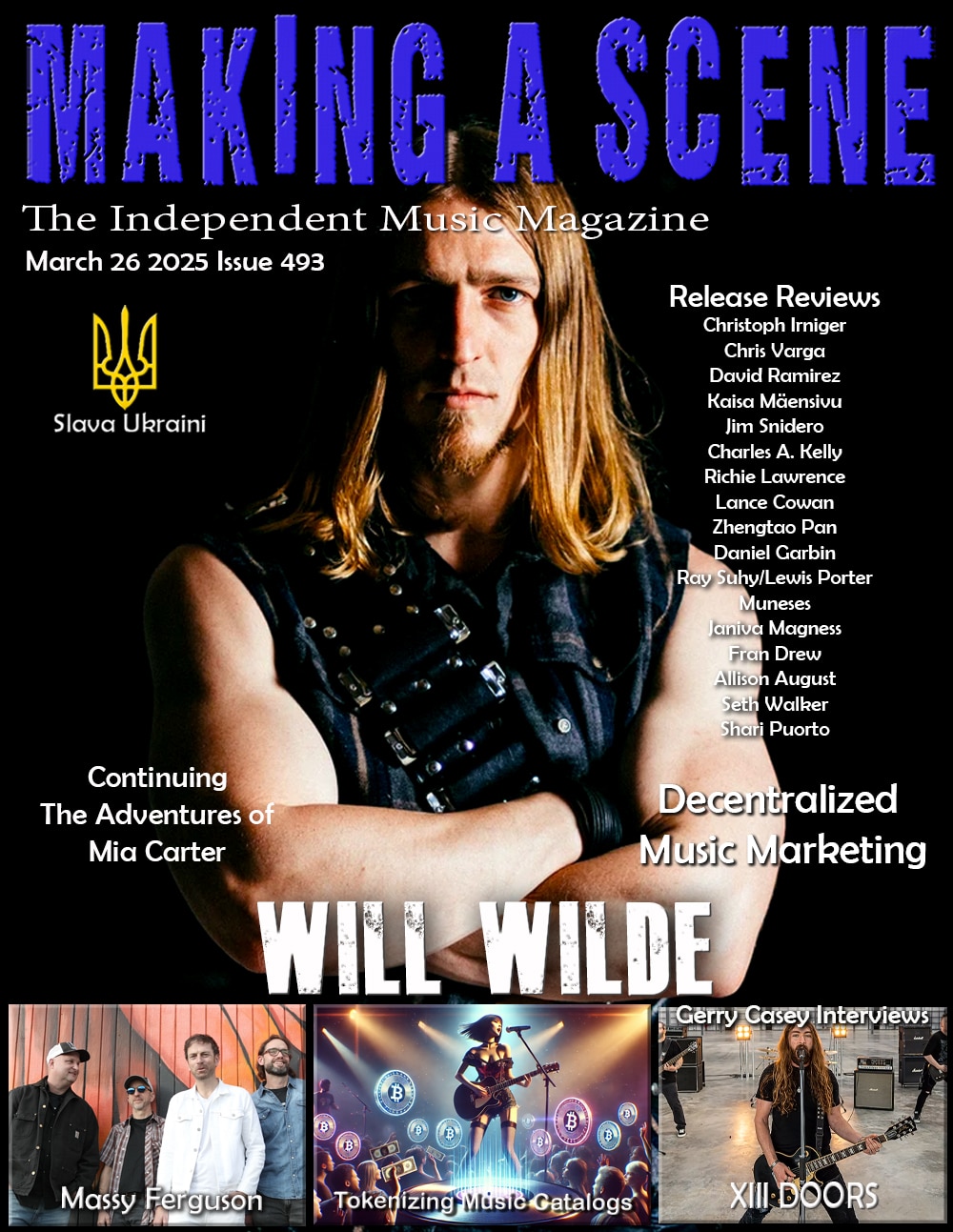HOW ONE INDEPENDENT MUSICIAN DEFEATED BMI
EDITORS NOTE: This is reprinted with permission of the author. I felt it was ironic that an independent musicians needs to be at odds with an organization that is designed to protect his rights. It is an interesting read, and a conversation that needs to happen with the new music business increasingly becoming centered on independent musicians.
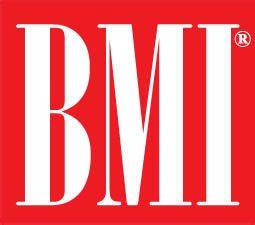
HOW ONE INDEPENDENT MUSICIAN DEFEATED BMI
© 2003 by Richard Hayes Phillips richardhayesphillips@yahoo.com https://www.northnet.org/minstrel
It was Memorial Day, and I had just finished the most successful stand of my career on the fringes of the music business. I had been playing acoustic music at a restaurant in the Hudson Valley for almost a year. I was their house musician, appearing on holiday weekends and whenever there was a special event that drew hordes of tourists to the town. I knew that I was in some kind of trouble when the owners, Joe and Kim, asked me to step outside. They did not appear to be angry with me. If anything, they seemed about to cry. “Weíre going to have to stop the music for now,” said Kim. Then she asked me if I had ever heard of BMI. I knew that BMI is a worldwide publishing empire that, along with ASCAP, owns the performance rights to “virtually” every song published in the United States. I also knew that their ubiquitous agents demand and collect licensing fees on an annual basis from owners of restaurants, coffeehouses and bars where copyrighted music is performed. “But I didnít sing any cover tunes,” I protested. “I just played a four-hour concert of all original and traditional material.” “It doesn’t matter. BMI is demanding a license even for Irish music,” said Kim. “We never heard of BMI before. We don’t know anything about it. Would you take care of this for us?” “I’d be happy to,” I answered. “I know the origins of every song that I sing.” I hoped that BMI would concede my right to sing original and traditional material, and that I would get my job back. Stunned, in shock, I sat down to eat my grilled salmon salad, the best thing on the menu. I told a friend what had happened, and I asked him: “What does BMI stand for, anyway?” “World domination,” he said. BMI also stands for “Broadcast Music Incorporated.” I found this out when Joe brought me a copy of a letter he described as “threatening.” The letter advised Kim of her “need for a BMI license.” It claimed that “whatever music you perform to benefit your business, its public performance requires a license.” It specifically mentioned Irish music. This was not just one little irate BMI employee trying to make a name for himself. The letter was written by Craig Stamm, Director of General Licensing at BMI headquarters in Nashville.
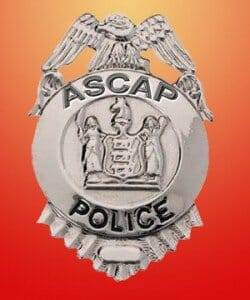
I had seen references to ASCAP and BMI on covers of record albums since the early sixties. I had no idea who they were until the mid-eighties when I encountered frightened restaurant owners in the Connecticut River Valley. Many of them had received letters, phone calls, or personal visits from agents of BMI or ASCAP (American Society of Composers, Authors and Publishers). They were told that if any musician ever sang even one ASCAP or BMI song on the premises, they would have to buy a license or be subject to an exorbitant fine. ASCAP was founded in 1913, and BMI in 1938, in order to collect royalties on behalf of songwriters and composers whose works are publicly performed. They sell blanket licenses, on an annual basis, allowing the performance of any song in their catalogues of representation. The reasons are obvious: it would be far too cumbersome for the promoter to track down every composer to whom royalties should be paid, or for the composers to track down every promoter who owes them money. But the licenses are not cheap. The cost depends upon how many musicians are playing, how often they play, and the maximum allowable occupancy under local fire codes. Federal copyright law provides for fines of up to $30,000 for each copyrighted song performed without a license, and up to $150,000 if the infringement is willful, plus attorneyís fees. This provision would seem to violate the Eighth Amendment under which “excessive fines” are prohibited.
Not wanting my employers to become embroiled in lawsuits or shakedown operations, I stopped singing “cover tunes,” that is, songs written and copyrighted by somebody else. I have been a songwriter and a traditional singer since the early seventies, which left me with a vast repertoire. In fact, it gave me a competitive advantage. I could walk into a restaurant or coffeehouse that had never hired a musician before, and assure them that if they were to hire me and nobody else, they would not need to purchase a license for live performances from ASCAP and BMI. In this way I found steady employment as the “house musician.”
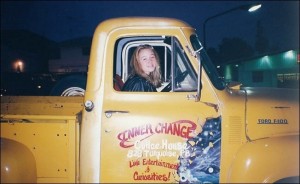
I encountered the same situation in San Diego in the mid-nineties. I found only two profit-making enterprises whose owners were not afraid of ASCAP and BMI agents. Naturally, they became two of my favorite places to play. The Inner Change Coffeehouse was legendary as a proving ground for singer/songwriters. Jewel Kilcher was discovered there. The owner simply chased away ASCAP and BMI agents, correctly pointing out that they were not at all interested in supporting the struggling musicians who performed at her coffeehouse. I recall having heard only one “cover tune” sung there, by an otherwise all-original rhythm and blues band. They sang “Mustang Sally,” and the audience had a wonderful time singing along with the refrain: “ride, Sally, ride.” Presumably those at NASA and elsewhere who sang these words when the astronaut Sally Ride was orbiting the earth were equally guilty of copyright violations.
Mikeyís Coffeehouse was more imaginative in their approach to ASCAP and BMI agents. They posted signs saying: “ASCAP will not let us pay musicians.” And they rented the stage for one dollar per night. In this way it could not be said that Mikeyís was giving the musicians anything of value for their services. They were on their own to busk for tips and to hawk their CDs. The owner, of course, was as much at liberty as anybody else to tip the musicians and to buy their recordings. These two coffeehouses inspired me to write one of my best satires: “Ballad of the ASCAP Agent.” It was such a hit at the Inner Change that I performed it, by request, three times in one concert. When I sang it at Mikey’s, people laughed out loud and asked me if the song was copyrighted.
Actually, all my songs are copyrighted, without assistance from ASCAP or BMI. Itís easy to do. Just fill out a form, write a check for $30, and send a copy of the work to be copyrighted. These days the forms are available online at https://www.copyright.gov/forms. Form TX is for literary works, and Form SR is for sound recordings. I copyright an entire cassette or CD at a time rather than pay $30 every time I write a song. I specify for each track which of the following I am copyrighting: words, music, arrangement and/or performance. I state on my CD covers that my recordings are copyrighted in my name. All rights reserved. This means exactly what it says. As the exclusive owner of the copyright, I enjoy the exclusive right of public performance and, BMI notwithstanding, the exclusive right to profit from their performance.
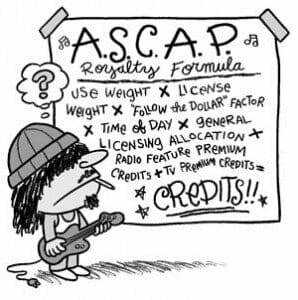
ASCAP and BMI will tell you it is foolish not to join their organizations, because you cannot collect royalties unless you do. But the truth is that unless you are famous, you are unlikely to collect any royalties even if you do join. The distribution of royalties is based upon airplay. ASCAP secretly tapes about 0.1% of all radio broadcasts each year, and only 1% of the sampled hours come from public radio stations. BMI uses radio station logbooks to determine who gets royalties. Owners of performance venues are required to pay licensing fees even though none of the money will ever go to those who wrote the music being played on their stage, unless it is also being played on the radio. Little wonder that many owners regard ASCAP and BMI as shakedown operations. Some have sworn to me that ASCAP is the Mafia.
ASCAP and BMI also consider the playing of a recording in a public place to be a “public performance,” and they demand licensing fees for this as well. They used to demand licensing fees for playing the radio or television until 1998, when Sonny Bono succeeded in passing the “Fairness in Music Licensing Act” exempting businesses with little enough floor space and few enough loudspeakers. ASCAP and BMI can demand licensing fees even for the performance of works whose authors are dead. Under current law, copyright protection lasts for the life of the artist plus 50 years. For a corporation, a copyright lasts 75 years. Every time that valuable copyrights are about to expire, the entertainment industry lobbies for an extension. In some cases there are identifiable heirs and descendants to receive the royalties. But I have to agree with Pete Seeger on this one: “The grandchildren should be able to find some other way to make a living, even if their grandfather did write ëHow Much Is That Doggie in the Window?í” It is my intention to will my copyrights to the public domain, but I will not be around to see if my attempt is successful.

According to Copyright Law, one cannot take the text of a work in the public domain and copyright it. There may be a valid copyright if there is a similar work in the public domain. These are called “derivative works.” They are not wholly original in the sense that they sprang in their entirety from the authorís mind. But the alteration was the result of original thought and therefore may be copyrighted. However, the public would not thereby be shut off from the use of the work in the public domain. A song in the public domain remains there forever. One can take the text and tune of a work in the public domain and copyright the arrangement and performance. “Sloop John B.” is a good example. The song first appeared in Carl Sandburgís “American Songbag,” a book of traditional folk songs. Sandburg was one of many persons who devoted themselves to collecting and preserving the traditional folk music of the English-speaking world. The song was recorded by Harry Belafonte, and later made famous by the Beach Boys. Brian Wilson composed magnificent harmonies and had every right to copyright his arrangement. But he never claimed to have written the song.
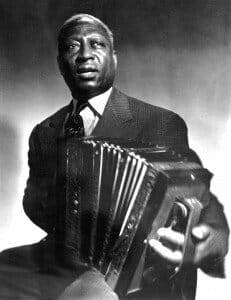
I sing “Sloop John B.” to an African kalimba. Clearly that is my arrangement, and it is copyrighted. The unfortunate truth is that anything can be copyrighted, at least for a time. Unlike the United States Patent Office, there is no one in the Copyright Office to verify the originality of the work to be copyrighted. However, I know of at least one federal case in which the court ruled that if the antiquity of a song can be proven, the copyright fails. John and Alan Lomax, who also devoted themselves to collecting and preserving traditional folk music, took the controversial step of copyrighting in their own names the songs they collected, as if they had written the songs themselves. They even copyrighted original songs collected from other singers, such as Leadbellyís “Good Night Irene.” This prompted Leadbelly to add a verse to “De Ballad of De Boll Weevil”: “If anybody axes you who it was dat wrote dis song, / Tell ëem it was a black-skinned nigger wid a pair oí blue duckinís on. / If anybody axes you who it was dat copyrighted dis song, / Tell ëem Alan Lomax and his goddamned father John.” Peter, Paul and Mary claim authorship, not merely the arrangement, of at least ten traditional folk songs on their first three albums alone.
In most cases they have changed the titles, and in some cases they have rearranged the lyrics. In all cases I have seen older versions of the same songs in print. I, too, have taken liberties with traditional folk songs. On one of my recordings, “Foote Loose,” there are four renditions in which I combined lyrics from two or more versions of the same folk song. But I do not claim authorship of these songs. I have copyrighted the arrangement and performance only. Anyone who wants to sing these words has my blessing. I have encountered restaurant and coffeehouse owners who will not allow traditional music to be performed on their stages, for fear that some ASCAP or BMI writer or publisher has copyrighted an arrangement of the song, or even the song itself. These fears are not unfounded, and the oral tradition, by which these songs have been transmitted from generation to generation, is thereby stifled. I have carefully preserved over the years photocopies of nearly every traditional song in my repertoire, in order to prove their antiquity. Suddenly, BMI was forcing me to do just that.

Five days after losing my job at the restaurant I wrote a letter to Craig Stamm, Director of General Licensing at BMI headquarters in Nashville. I explained that all of my repertoire consists of original or traditional material, and therefore no BMI license is required. Regarding his written assertion that a BMI license is necessary to perform Irish music, I said: “BMI did not bring their music to the United States. Traditional music was brought here from the old country by the settlers themselves. It is overreaching to assert that whatever music you perform to benefit your business, its public performance requires a license BMI does not own my original compositions or my arrangements of traditional music. It is beyond my comprehension how BMI could propose to deliver royalties to the authors, or to the descendants of authors, of traditional music. The authors are unknown. If you have objections, please name the songs that you believe are not traditional, and I will show that they are.”
After two weeks I had received no response, so I talked to BMI personnel on the telephone. I was told that the burden of proof is on the business owner to examine a list of 4.5 million songs in the BMI catalog and to prove that none of these songs have been performed. I was asked how I know that no musician at the restaurant was performing “licensable BMI music.” I answered that I am their only musician. I was asked how I know that the songs I sing are not “licensable BMI music.” I answered that I wrote them myself. I was told that if the songs are copyrighted, the rights are owned by ASCAP or BMI. I answered that I copyrighted them myself, without assistance. I wrote again to Craig Stamm. I recounted the telephone conversations, and I asked for “a statement, in writing, that I am at liberty to perform my own songs, copyrighted in my name, and traditional folk songs, in the public domain, anywhere I want to, whether or not the venue has a license from BMI.” I continued: “If I cannot get such a statement from BMI, then I will have to seek such a statement from the courts.” I received no written response from BMI. When I spoke to Craig Stamm directly on the telephone and asked again for such a statement, he said: “Were not going to give you that.”

An ASCAP employee, “very high up” in the organization, was told of my situation and, at first, was not at all sympathetic. “This story does not sound right,” he said. “ASCAP would not be able to sue the establishment for not paying performance royalties without the cooperation of the songwriter.” I assured him that the story was true. “Perhaps BMI does not play by the same rules,” I said. “They were demanding money from MY employers for MY performance of MY songs. BMI certainly did not have the cooperation of the songwriter. It was BMI that was guilty of copyright infringement, and their actions meet the legal definition of extortion.” He gave a rather flippant response, which he later retracted: “If the fees paid by a club to ASCAP members for the use of their copyrighted music are enough to drive that nightclub out of business, then that club was teetering on the edge of insolvency anyway. … The average fee for an ASCAP blanket license for a bar or restaurant is about $500.00 per year. … It’s funny how some bar owners are willing to pay for everything they use, except for the music, which is why many people come there in the first place.” Actually, the owners of the restaurant refused to buy a BMI license for live performances not because they were “teetering on the edge of insolvency.” The restaurant is a success story, having grown from an ice cream parlor to a lunch and dinner restaurant. They have the largest wine list in the Hudson Valley, and they also own a liquor store. They refused to buy the license because they had no live performers who were singing or playing any ASCAP or BMI material. That the license is cheap enough to be affordable is beside the point. I can afford to pay more taxes than I do without falling into bankruptcy, but why should I pay what I do not owe?

Moreover, ASCAP has horror stories of its own. In 1995 ASCAP sent letters to 6,000 summer camps, including the Girl Scouts, informing them that they had to pay royalties for “public performances.” Copyright law defines a “public performance” as a place “where a substantial number of persons outside of a normal circle of a family and its social acquaintances is gathered.” ASCAP did not specifically say that it wanted to charge for singing around the campfire, but the damage was done. For ASCAP it was a public relations disaster. And some Girl Scout leaders are still afraid to sing “Puff the Magic Dragon.” In 1992 an ASCAP undercover agent caught a piano player at a New Jersey restaurant playing George Gershwinís “Rhapsody in Blue” without a license. ASCAP sued the restaurant and settled out of court for $5,500. ASCAP has been known to threaten legal action for the singing of “Happy Birthday.” How do they know? Harvey Reid, a musician based in Maine, explains it well. ASCAP and BMI have field agents on payroll who listen to the radio and watch the newspaper listings. When a new venue starts offering live music, an agent will either show up in person or write a letter demanding money for the license. “If a nightclub or even a store refuses to buy the license, then ASCAP or BMI will hire spies, often local music teachers or semi-professional musicians who will make notes and testify in court as expert witnesses that on a certain date at a certain time a certain song was indeed played. … Note that even though the musicians or the employees decide what is played it is the owner of the establishment where the music is played who gets sued.” To see the full text of Harvey Reidís article, “ASCAP and BMI: Protectors of Artists or Shadowy Thieves?” go to https://www.woodpecker.com.
I was well aware that few, if any, have ever won a lawsuit against ASCAP or BMI. But I am not easily intimidated. I researched 63 years of copyright case law and began contacting attorneys. Many were willing to talk with me. But none were willing to take the case. Every lawyer I talked to urged me to look at RICO, a federal law which stands for “Racketeer Influenced and Corrupt Organizations.” The actions of BMI, demanding money from my employers for my performance of my songs, appear to fall within the definition of extortion as incorporated by RICO: “the obtaining of property from another, with his consent, induced by wrongful use of actual or threatened force, violence, or fear, or under color of official right.” Under case law, it does not matter whether the attempt was successful; attempted extortion is extortion. Knowing that making a federal case out of this would be expensive, stressful, and time-consuming, I sought help from elected Democrats and liberal groups. I was turned down by Senator Charles Schumer, Senator Hillary Clinton, New York Attorney General Eliot Spitzer, the American Civil Liberties Union, the National Lawyersí Guild, and Volunteer Lawyers for the Arts. Then, on New Years Eve, I received a letter from Congressman John McHugh (R, NY).
At first I thought it was a bulk mailing. I was irritated to receive it from a politician who had not even answered my inquiry. I was in for a surprise. Congressman McHugh had forwarded my letter to the United States Copyright Office and had elicited a response from Marilyn Kretsinger, Assistant General Counsel. I should not have been surprised. John McHugh had stood up for north country artists before, and no doubt he will do it again. Marilyn Kretsinger upheld each of my contentions. In her words, “BMI has the authority to issue a license only for those songs that are in its catalogue of representation.” If the performance venue does not “publicly perform songs represented by BMI,” then a BMI license is not needed. She further stated: “With respect to the musical compositions that Mr. Phillips has authored, no performance license is necessary since Mr. Phillips is the copyright owner of those songs.”
With respect to traditional folk songs in the public domain, if I am “not performing a copyrighted arrangement of a public domain folk song, then a BMI license is not required.
The opinion has far-reaching implications for independent musicians and for the entrepreneurs who hire them. No venue is in need of a performance license unless one or more of its musicians are performing compositions or arrangements copyrighted and licensed through ASCAP, BMI or SESAC. The copyright owner enjoys exclusive performance rights and, therefore, the exclusive right to profit from their performance. The point is so obvious that it has never been litigated, which makes this a landmark decision. The full texts of the Copyright Office opinion and all related correspondence are available online athttps://www.northnet.org/minstrel Appendix BMI. But I never did get my job back. The restaurant owners have decided not to have any live performances or to play any recorded music. To them it is not worth the hassle. The customers must settle for radio and television. And I have not found such a lucrative job since. Such is the legacy of BMI.
Discover more from Making A Scene!
Subscribe to get the latest posts sent to your email.





































